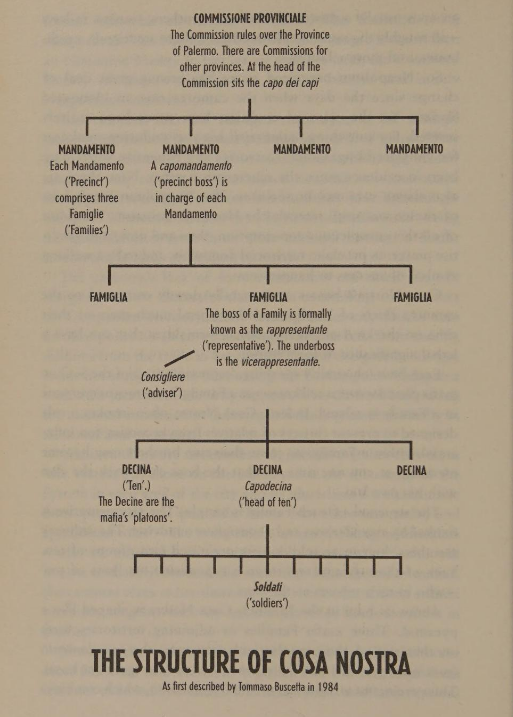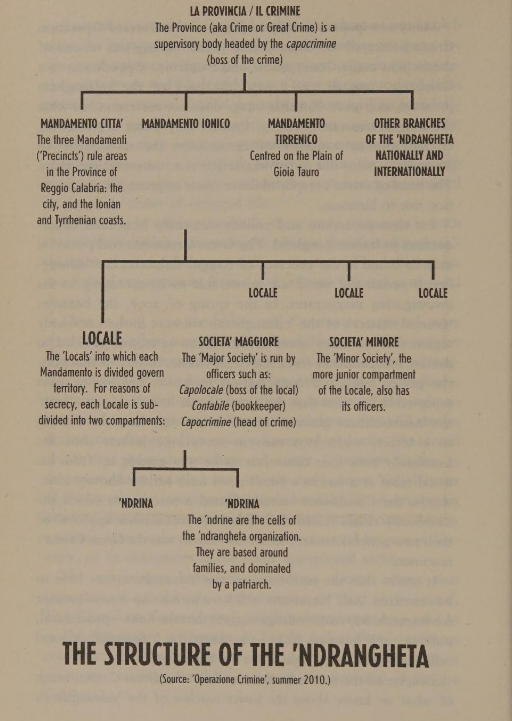https://ildispaccio.it/reggio-calabria/ ... cosa-nuovaB. wrote: ↑Thu Jul 22, 2021 1:58 am Wasn't Gaetano Costa from Messina a member of the 'Ndrangheta? I read he was inducted in both the Sicilian mafia and 'ndrangheta but I don't know the details.
Costa became a pentito and also said Nitto Santapaolo of Catania was an 'Ndranghetista before he was made into the Sicilian mafia. Calderone didn't say anything like that from what I remember. Anyone know more?
La Cosa Nuova (The New Thing). It is true that, in the 1990s, the existence of an evolution of the 'Ndrangheta and Mafia structure had not held up in court, but today, in the light of the new acquisitions, the concept could return with different weight. To relaunch it, during the "Gotha" trial, is the collaborator of justice Gaetano Costa, born in Messina, but affiliated with the 'Ndrangheta: "Since the 1970s, there was no Cosa Nostra in Messina, but there was the' Ndrangheta" he says, answering the questions of the deputy prosecutor Giuseppe Lombardo.
With the maxi-trial "Gotha", the DDA of Reggio Calabria brought the Reggio Calabria masso-'ndrangheta to trial. The Masonic dome is reserved for the 'ndrine - superordinate to them - which would have been ruled by the lawyers Paolo Romeo and Giorgio De Stefano.
Costa was called to depose precisely on the issues of the ties between the 'Ndrangheta and Freemasonry and on the "Cosa Nuova". Collaborator since 1994, he outlines Messina (at least until the years of his choice to repent) as a branch of Calabria, in particular of the Piromalli, De Stefano, Strangio, Giorgi and Gioffrè families. Costa lived through the years in which the 'Ndrangheta modernized itself through the creation of the secret structure of the "Santa", which allowed the clans to make a leap in quality: "Until the birth of the Saint there was a form of repudiation of power, from there instead the link with politics and Freemasonry is born: everything has been bastardized ". And, however, thanks to this evolution, Costa can say that he knew that some trials had been "fixed" in the past by the Piromalli, even in the Supreme Court.
Daughter of this need to modernize crime and be able to make it insinuate into the ganglia of power, it would have been the idea of forming the "New Thing", a sort of governing body, placed above the clans, which arose in the months following the end of the second mafia war, formed by the representatives of the most important families, with attributions concerning the care of relations with other historical mafia organizations, a sort of redistribution of the various compartments of the 'Ndrangheta. The idea of the "New Thing" is communicated to Costa by Domenico Raso, a strong man of the 'ndrine of the Piana di Gioia Tauro, a few months before Costa decides to repent. Everything would have been born from the direction of the Piromalli, the Pesce, the Bellocco, the Mancuso di Limbadi and the Muto di Cetraro, but it should also have involved Sicily and, in particular, the Corleonesi of Totò Riina, in that period hegemonic after the massacres of Capaci and via d'Amelio: "It was to counteract the seizure of assets and to stem pentiti, but also to strengthen relations between the mafia and the 'Ndrangheta" explains Costa.
The employee finally focuses on the role the lawyer Giorgio De Stefano, considered the "mastermind" of the family: "In close relationships with Barbaro and Papalia of Platì and Mariano Agate of Mazara del Vallo and Leoluca Bagarella".

